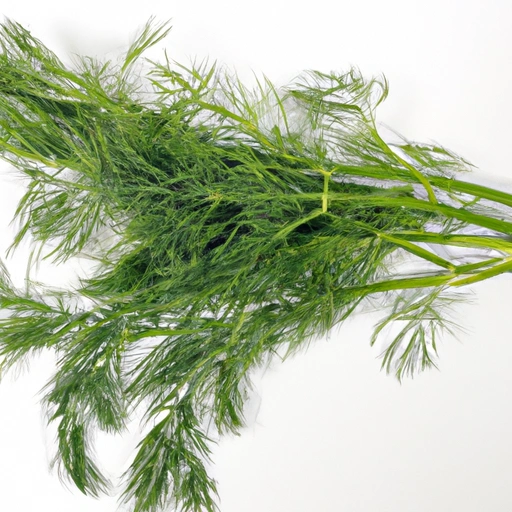Dill Weed
Description

Dill weed, the feathery green herb, is derived from the plant Anethum graveolens and is widely regarded for its distinctive flavor that adds a certain zest to a plethora of dishes. Dill weed is commonly measured in fresh bunches, teaspoons (tsp), tablespoons (tbsp), or grams (g) and ounces (oz) for the dried version.
Common uses
Dill weed is often used to enhance the flavor of salads, soups, pickles, and fish dishes. It's also a common ingredient in dips, spreads, and sauces, and can be found as a seasoning in breads and vegetables.
Nutritional value
Calories
In a 1 tablespoon (tbsp) serving, which equates to about 0.5 grams (g), dried dill weed contains approximately 1 to 2 calories.
Protein
Dill weed offers approximately 0.1 grams (g) of protein per tablespoon (tbsp).
Fat
This herb is virtually fat-free, with amounts typically negligible in common serving sizes.
Carbohydrates
There are about 0.2 grams (g) of carbohydrates in a tablespoon (tbsp) of dill weed.
Vitamins
Dill weed is rich in vitamin A and vitamin C, providing a good source of these essential nutrients in a typical serving.
Minerals
The herb contains trace amounts of minerals such as iron, manganese, and calcium.
Health benefits
Dill weed has potential digestive benefits, can help with insomnia and hiccups, and has properties that may contribute to bone health and antibacterial functions.
Potential risks
While dill weed is generally safe for most people, excessive consumption can lead to skin irritation, and it may have a diuretic effect. Those with plant allergies should consume with caution.
Common recipes
Dill weed is a common ingredient in recipes for potato salad, pickled vegetables, cucumber salads, salmon dishes, and yogurt-based sauces.
Cooking methods
It can be used fresh or dried and is often added at the end of cooking to preserve its delicate flavor.
Pairing with other ingredients
Dill weed pairs exceptionally well with seafood, potatoes, cream-based sauces, and fresh vegetables like cucumbers and carrots.
Summary
Dill weed is a flavorful herb with a rich history and a variety of culinary applications. From its nutritional benefits to its unique taste, dill weed is a staple in kitchens around the world and can elevate the flavor profile of many dishes.